Irish Movies: Angela's Ashes

Celebrate the luck of the Irish with one of these Irish films
by Beth Rowen |
|
Curious about the origins of St. Patrick's Day? Click here for more features. Related Links |
Instead of overindulging on green beer and corned beef and cabbage this St. Patrick's Day, why not get a real taste of Ireland by settling in with a pint of Guinness and an armful of Irish movies? We've selected what we think are the best movies from or about Ireland.

Angela's Ashes
Frank McCourt's memoir Angela's Ashes was successful because he infused his poverty-stricken youth with wit, hope, and a knack for storytelling. Alan Parker's 1999 film adaptation enlivens a miserable story with romanticized ghettos, beautifully soot-stained urchins, and other tragedies made pretty.
Three boys play McCourt at various stages of his life. Emily Watson works well as mother Angela, a woman tormented by her husband's (Robert Carlyle) alcoholism. Instead of unleashing the destructive unpredictability of a drunk dad, director Parker settles for pleasant vignettes and apt details, glossing over of the grim bits that were a constant throughout the book's narrative.
Barry Lyndon
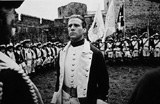
This 1975 Stanley Kubrick adaptation of the William Makepeace Thackeray novel won four Oscars, including Best Cinematography and Costume Design. Ryan O'Neal stars as a young Irish rogue/social climber who finds disappointment when his ambitions are finally realized. The film runs more than three hours, but Kubrick's pacing, lush cinematography, and artful costumes keep viewers engaged. A stunning, complex epic that has become one of Kubrick's most artistic, sumptuous efforts.
The Boxer
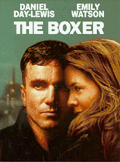
Director Jim Sheridan and actor Daniel Day-Lewis team up for their third—and most immediate—film about Northern Ireland. The chemistry between Day-Lewis and Watson burns up the screen, creating a fiery edge-of-your-seat intensity. And that's the romantic part of the film. There's also the drama surrounding the Troubles. A changed political climate in which a fragile Northern Ireland teeters on the brink of violence during the cease fire makes 1997's The Boxer even more intense than In the Name of the Father.
Recently released after serving a 14-year prison sentence for doing the IRA a favor, Danny Flynn (Day-Lewis) longs for peace in his life. He also wants another go at the boxing career he left behind when he went to jail. Danny's hope for peace is threatened when he's reunited with his old girlfriend, Maggie (Watson), who's since married his best friend and had a child. Maggie doesn't love her husband, who is now in jail himself, but can't go back to Danny because of an IRA code of loyalty. Maggie's father, a local IRA leader (Brian Cox), can't offer Danny any protection because of the code and a firebrand underling who prefers the days of guns and violence—within and outside the IRA.
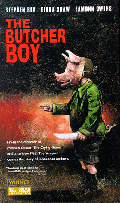
Butcher Boy
A small-town Irish boy's rambunctious nature turns violent in this 1997 shocker from filmmaker Neil Jordan (The Crying Game and Michael Collins). Thirteen-year-old Francie Brady (Eamonn Owens) retreats from his father's (Stephen Rea) drunkenness and his mother's (Aisling O'Sullivan) depression into a world of manic fantasy that begins with a prank on his nasty neighbor Mrs. Nugent (Fiona Shaw) and ends, well, apropos the film's title. Based on the novel by Patrick McCabe.
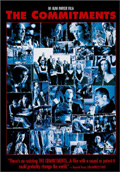
The Commitments
Director Alan Parker presents a decidedly unromantic portrait of working-class Ireland, and he does it with flair and authenticity. Ambitious wheeler-dealer Jimmy Rabbitte (Robert Arkins) thinks that Dublin needs a top-rate soul band. A series of hilarious auditions produces a motley crew that may in fact be the real thing. The 1991 film remains one of the best music movies ever made. The Commitments is the first novel in Roddy Doyle's Barrytown Trilogy.
The Dead
This 1987 elegy, based on the James Joyce short story, was legendary director John Huston's last effort. Set during a festive holiday dinner, the film reveals the vulnerabilities of the characters as they revel with song, talk, and alcohol. Anjelica Huston stars as an unhappy wife who makes a sad confession to her husband that only reinforces his regrets.
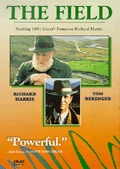
The Field
Acclaimed Irish director Jim Sheridan helmed this gritty, yet moving 1990 film, which was based on a play by John B. Keane. Richard Harris was nominated for a Best Actor Oscar for his moving portrayal of a stubborn farmer who's outraged when he learns an Irish-American (Tom Berenger) intends to buy his rented plot of land and industrialize the area.
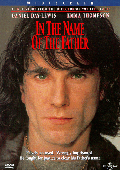
In the Name of the Father
Daniel Day-Lewis and director Jim Sheridan reunited for this intense docudrama about a group of Belfast ne'er do wells who were tortured into admitting to masterminding and executing a deadly terrorist bombing that killed five in Guildford, England. Gerry Conlon (Day-Lewis) and his father (Pete Postelthwaite) served in prison together, and the interaction between the two characters is both heart-wrenching and uplifting. The 1993 film was nominated for seven Oscars, including Best Picture, Actor, Director, Supporting Actor, and Supporting Actress.
Michael Collins
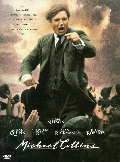
Michael Collins was a bold project for director Neil Jordan to undertake, as the title character is not a well-known figure on these shores, and he's a controversial one in Ireland and England. But he got a boost when the 1996 film and Liam Neeson in the title role won top honors at the Venice Film Festival.
Collins (Neeson) led the underground Irish Volunteers in their fight against English occupation of Ireland. He organized the group shortly after the Easter Uprising of 1916 and commanded the bloody fight between the Volunteers and English spies and troops stationed in Ireland. Jordan threw a love triangle into the mix, with Collins and his right-hand man Harry Boland (Aidan Quinn) both falling for Kitty Kiernan (Julia Roberts). Collins's reputation as freedom fighter and hero suffered irreparably when he compromised with the British, leaving Northern Ireland under crown rule. He was shot at age 31, and some suspected former ally Eamon de Valera (Alan Rickman) was in on plans to assassinate Collins.

My Left Foot
Far from a "disease-of-the-week" film, My Left Foot poignantly tells the true story of Christy Brown, an Irish writer-painter who was born with cerebral palsy and only had the use of his left foot. Daniel Day-Lewis won a Best Actor Oscar for his portrayal of Brown as an adult. Brenda Fricker won a Best Supporting Actress for her role as his mother. Day-Lewis's performance is an emotional tour de force, perfectly capturing Brown's mercurial temperament.
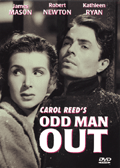
Odd Man Out
James Mason became a Hollywood star after this 1947 gripping chase movie. He plays IRA leader Johnny McQueen who's wounded during a botched bank robbery. He barely escapes and stumbles through the streets of Belfast, with the police quickly closing in. The film was remade in 1967, as The Lost Man, starring Sidney Poitier.
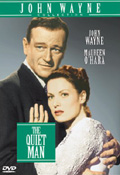
The Quiet Man
John Ford digresses from his dusty trademark Westerns with this spirited love story set in lush Ireland. And what a rewarding digression it is. This stunning labor of love earned Ford a 1952 Oscar, and its beautiful scenery and score were also recognized with statuettes.
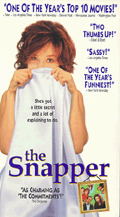
The Snapper
The Curley family of working-class Dublin is thrown for a loop when 20-year-old daughter Sharon (Tina Kellegher) announces that she's pregnant but refuses to reveal the identity of the father. The news quickly spreads, and Tina's situation becomes the talk of the pub. Her father, played by Colm Meaney in fine form, is at first outraged and then protective of his daughter as the rumor mill churns at full throttle. The pregnancy doesn't hinder Sharon's nightly trips to the local watering hole, but it does go a long way in strengthening the father-daughter bond. A tight, briskly paced comedy anchored by fully realized characters. This was the second installment in Roddy Doyle's Barrytown Trilogy.
Some Mother's Son
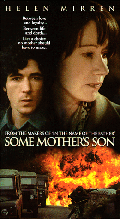
In 1981 Northern Ireland, a mother faces the heart-wrenching decision of whether to let her son die for his cause. Kathleen Quigley (Helen Mirren), once fiercely apolitical, finds herself in the middle of the Troubles after British police invade her home on Christmas day and arrest her son, Gerard (Aidan Gillen), for involvement in an IRA bombing. The 1996 film focuses on the hunger strike led by Bobby Sands (John Lynch) in which 10 protestors, including Sands, died.
The nonviolent protests were triggered by Margaret Thatcher's decision to have imprisoned IRA soldiers classified as criminals rather than political prisoners. Gerard participates in the strike, and when he slips into a coma, Kathleen has the legal right to have him force-fed. She finds a friend in Annie Higgins (Fionnula Flanagan), who also has a son near death. While Kathleen battles spiritually and morally with her son's fate, Higgins respects her son's wishes, no matter how painful the result. Some Mother's Son is a loose sequel to 1993's In the Name of the Father. While the earlier film pretended an objectivity, Some Mother's Son openly portrays the British government as a brutally oppressive regime. Moving but profoundly sad.
The Van
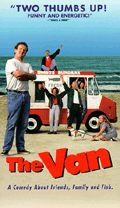
The Van is not as sharply observed or as boisterous as the first two installments of Roddy Doyle's Barrytown Trilogy, The Commitments and The Snapper, but it is a sincere portrayal of Dublin's working class. When bakery worker Bimbo (Donal O'Kelly) loses his job, he heads to the pub to commiserate with his out-of-work buddies.
Bimbo convinces his best friend, Larry (Colm Meaney), to go into business with him. They decide to peddle fried food out of a chipper van and scrape together enough money to buy a grease-infested, broken-down truck. Their timing could not be better. The 1997 film is set in 1990, when Ireland advanced to the World Cup finals. They park the van outside pubs on game nights and make a killing. But the partnership nearly destroys the friendship as Bimbo questions Larry's work ethic. The accumulating grime under Larry's fingernails doesn't help Bimbo's confidence.







